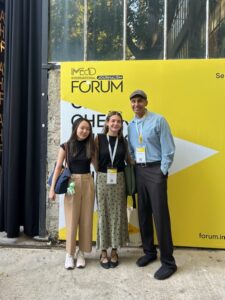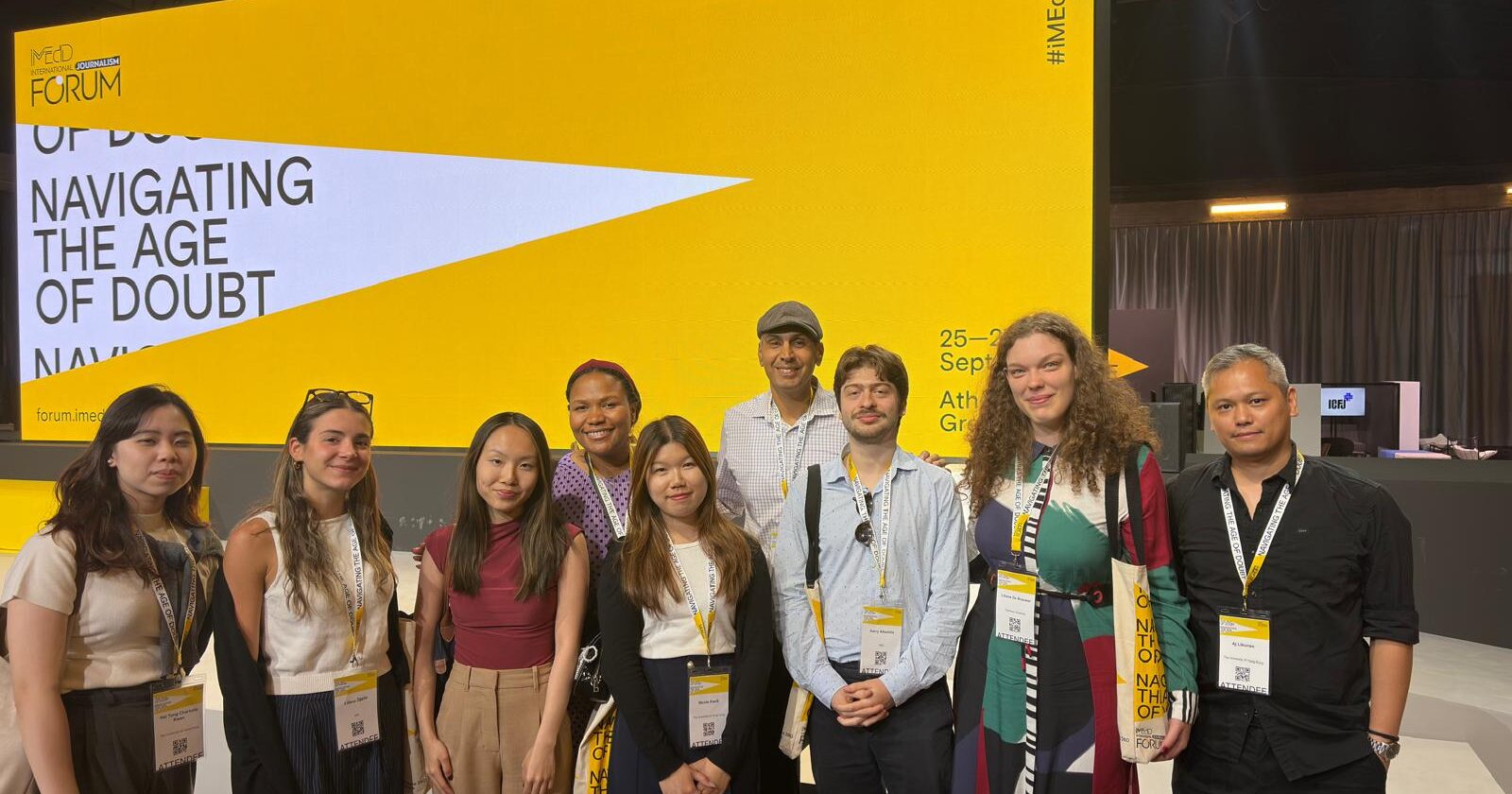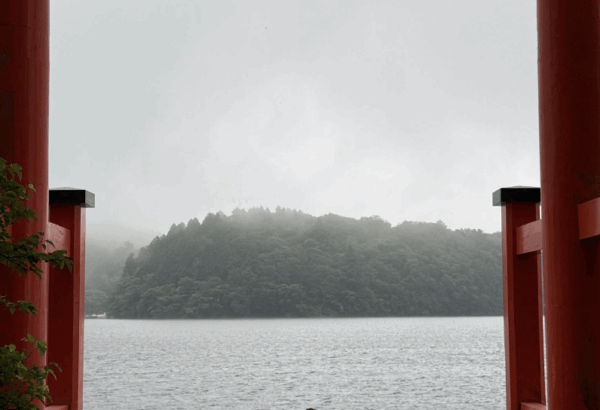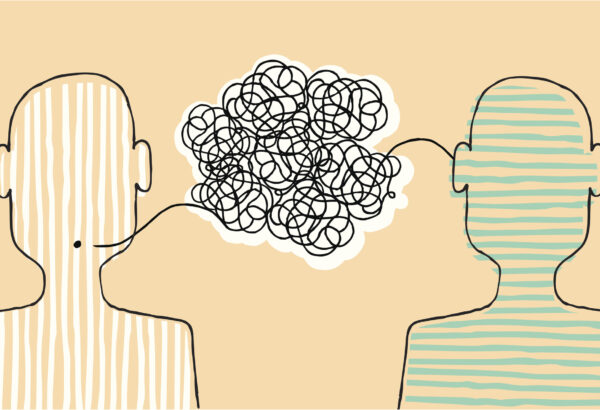In the 1990s and 2000s, I was a newspaper reporter who believed my industry would never crumble. After all, I had come to believe in the power of journalism as the Fourth Estate, and as someone who covered the Sept. 11, 2001 terrorist attacks, I believed the power of facts would overcome the darkness of lies and misinformation.
For me, as a devout Hindu, the idea of being a journalist corresponded to following my dharma and acting in the path of the righteousness, always shining a light to the truth.
In the mid-2000s, the Internet decided to have a word, and after watching my newspaper’s revenues decline with the rise of blogs, I left the newsroom. Since then, journalists’ jobs have been even more difficult, as the industry of news and the presentation of facts has been transformed by the Internet. In some good ways, and many not good ways.

That’s why, when I was invited to Athens to attend the Incubator for Media Education and Development Forum this year, I was skeptical. But I was also happy to bring along two of my star undergraduate students, Liliana Davila and Victoria Feng, both veterans of my SNF Paideia courses.
The Forum, “Navigating the Age of Doubt,” was a transformative experience. Over the course of three days, my students and I connected with journalists, activists, scholars, and students from around the world, including those who have suffered firsthand in a “post-truth” world. But listening to how some of these media practitioners navigate almost impossible terrain was an inspiration. Moreover, it was a reminder that the commitment to seeking truth exists, even as journalists’ lives are increasingly in danger. Over 250 journalists have lost their lives in Gaza, a number that has dwarfed other international conflicts, including World War II.
Liliana and Victoria also connected with fellow travelers who represent the future of media across the world. At a time when human-centered media content creation is complicated by AI and disinformation, I left the conference feeling confident that future generations of journalists and media professionals will be able to redefine the work while holding the powerful accountable.
I can’t thank my colleagues from the SNF Paideia program enough for this opportunity and am especially grateful to my undergraduate dean, Litty Paxton, for her constant support of my work with Paideia. I look forward to attending more iMEdD Forums in the future, especially as we work through a volatile period for media professionals across the globe.
Murali Balaji, Ph.D, teaches about race, global media, nationalism, media activism, and social justice. He is a journalist, author and lecturer in the Annenberg School for Communication. Dr. Balaji is currently teaching the SNF Paideia designated course Media Industries and Nationalism and has taught Drawing the Blue Line: Police and Power in American Popular Culture.
_________________________________
By Liliana Davila
This year, I had the incredible opportunity to attend the iMEdD International Journalism Forum in Athens, Greece. I’m beyond grateful to my professor, Dr. Balaji, for inviting me to be part of the trip, and to the SNF Paideia Program for supporting our group and making the experience possible. The forum’s theme, “Navigating the Age of Doubt,” offered a unique chance to explore what the future holds for journalism during this time of uncertainty. Throughout the conference, we heard from journalists, media professionals, and academics from around the world who shared how they’ve navigated the hardships their careers have faced in recent years — and how drastic changes, such as the arrival of AI, have impacted their work. With the overwhelming amount of information circulating about AI and the future of journalism, it was especially valuable to hear from people who are experiencing these shifts firsthand and could share their honest perspectives.
One of my favorite panels was the opening one, which shared the same title as the conference and really set the tone for the rest of the discussions. It sparked powerful conversations about the lack of trust in the news, the decline in public engagement, and the dangers of misinformation. It was particularly interesting because there were moments of disagreement among some of the most seasoned media professionals about the future of journalism and the challenges it faces. Witnessing this kind of debate perfectly reflected the theme of uncertainty that ran through the event. At the same time, it was inspiring to hear varying degrees of optimism and creative ideas for how journalism can adapt and rebuild trust.
Another panel I found especially engaging was “In a changing information environment, what is ‘news’ and who gets to decide?” It featured new research from the Pew Research Center on how people interact with news today. The discussion explored how evolving technologies, shifting values, and declining trust influence how people define “news” and where they turn for it, as well as how news organizations are responding to these changes to better engage audiences and rebuild credibility. We also heard powerful testimonies from journalists working in war and conflict zones, such as Gaza, who have gone to unimaginable lengths to bring information to the public. These stories highlighted the dangers and targeted attacks journalists face today, raising critical questions about how we can better protect them and ensure that stories of suffering continue to be told.
What I enjoyed most about the conference was the opportunity to step outside the U.S. media space and learn from so many accomplished professionals from different regions, backgrounds, and industries. It’s rare to be in such a diverse environment filled with people who share a deep understanding of and passion for the media landscape. I also loved connecting with students from around the world who are eager to make positive changes in the future of journalism and media.
Liliana Davila (C’26) is majoring in Communication with minors in Consumer Psychology and Design.
_________________________________
By Victoria Feng
This September, I was one of the attendees at the incubator for Media Education and Development’s annual iMEdD International Journalism Forum in Athens, Greece. This year’s theme was “Navigating the Age of Doubt,” reflecting the declining trust in certain media and practitioners’ own concerns about the future.
The conference began with a panel discussion about misinformation, media fragmentation, and press freedom. By the way that even the panelists onstage at times debated with one another, it’s clear that these problems are ones that have no clear consensus, even among journalists and their affiliates.
One topic that was frequently brought up by organizers, panelists, and attendees was, not surprisingly, AI. Over the conference’s three days, I attended panels about AI data centers and how to use AI responsibly in one’s reporting.
A lot of the topics covered are ones we have also spent time learning about and discussing at the Annenberg School for Communication, so it was interesting to hear about them from a more international perspective. I also enjoyed having one-on-one and small group conversations with attendees, especially other students, from a variety of backgrounds. Despite just meeting each other, there was a lot we had in common.
At what seems like a time of great uncertainty for the media industry, this conference drew attention to key questions that I hope will continue to be answered and debated in the years to come.
Victoria Feng (C’25) is majoring in Communication with a minor in Law and Society.




